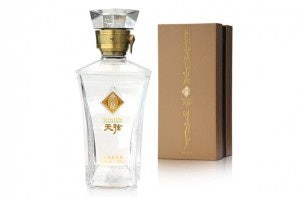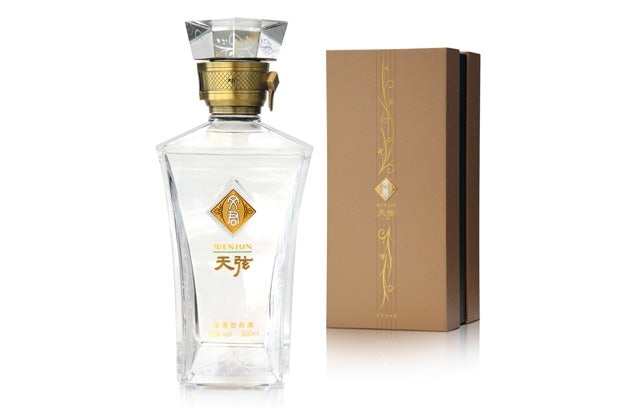"900 Million Cases [Of Baijiu] Are Sold A Year"#

As the world's largest beer producer and consumer, the number two consumer of cognac and seventh-largest consumer of wine, China is rightfully considered a massive market for international drinks firms. But are major brands in too much of a hurry to plow into the country, betting big on China's growing demand for scotch and vodka? This week, a debate hosted by the Worshipful Company of Distillers in London covered this and several other questions, with speakers staying mostly bullish about the market. According to one speaker at the debate, the fundamentals of China's wine and spirits industry are cause for serious optimism: 1.1 billion people of legal drinking age, a middle class that should number 430 million by 2015, and US$656.1 million worth of spirits imported last year -- a number expected to double by 2015, according to Morgan Stanley.
As the country's luxury market remains on track to become the world's largest within the next three years, speakers at the debate noted that Scotch and cognac remain highly "in demand products" for the country's wealthy. However, one point that presenters kept coming back to is the relatively small market share of imported spirits in China. Currently, despite surging imports and massive pent-up demand, "Western-style" spirits like vodka, whisky and cognac account for only one percent of the spirits market in China.
What this means is that baijiu -- the paint-stripping traditional Chinese spirit -- remains king. Putting this into perspective, Martin Riley, chief marketing officer at Pernod Ricard, said, “[Baijiu] a phenomenon and plays a pivotal role in society – 900 million cases are sold a year.” In comparison, only four million cases of imported spirits are sold every year in China -- a not-insignificant amount, but only a drop in the bucket compared to baijiu. Noting the central importance of high-end baijiu as a traditional luxury good and common gifting option, in recent years the likes of LVMH and Diageo have acquired baijiu makers such as Wenjun and Shui Jing Fang, diversifying their businesses in China while looking to take advantage of growing demand for "luxury" bottles.
Riley went on to discuss the important role that alcohol plays in Chinese society, saying, “It has no negativity surrounding it, is involved in the majority of food occasions and the Chinese drink 11.6 liters per head a year of beer, wines and spirits.”
Despite the dominance of baijiu, spirits makers note that growing sophistication and brand loyalty among Chinese consumers is a key trend, and speakers at this week's event agreed that cognac and whisky will likely continue to show the greatest growth in the imported spirits category. As Morgan Stanley recently noted, this will make it even harder for vodka makers to gain a foothold -- though Absolut is making steady progress. As the Morgan Stanley report put it, "With around EUR400 million (US$525 million) of marketing spend devoted to Cognac and Whisky and already several decades of dominance for these categories within imported liquor, the barriers to entry to any other categories [in China] are high." Considering three massive brands (Hennessy Cognac, Martel Cognac, and Chivas Regal whisky) account for 50 percent of the country's imported spirits market, the race to reach Chinese drinkers is likely to become far more expensive, and far more contentious, for smaller brands in the years ahead.
